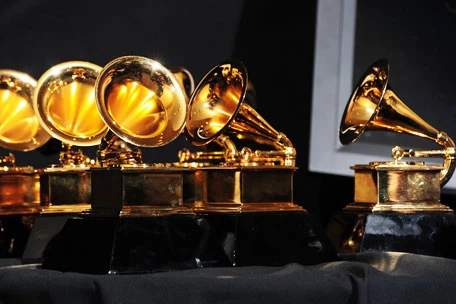Minutia: Music by Numbers Inherently Sucks
September 4, 2014
 Courtesy of AFP/Getty Images
Courtesy of AFP/Getty Images
If I had my way, there’d be no more award shows, no more grading according to stars or letters or decimal points, no more best of insert arbitrary timeframe here lists. Intentionally or not, all of these practices cultivate a cancerous tumor that swallows music’s soul-nourishing emotive qualities and shits out another fashionable commodity. The very notion of subjecting an intensely personal reaction to a standardized definition of quality should immediately make our stomachs churn, but the practice is so widespread that no one blinks an eye.
Awards shows are most infuriating and it’s their drivel that reaches the most eyes, ears, and minds. Regardless of whether voting is relegated to industry members or “the people,” the resulting celebration will inevitably be the result of the same incestuous money-promotion-consumption feedback loop. Would you prefer your national promotional event congratulate products that were most lucrative for industry executives or most consumed by the public? It’s a false dichotomy. Either way, you’re stuck with mediocre, unoriginal, lowest-common-denominator music whose success derives from an unmatched ability to provide inconsequential background noise for equally lobotomized situations. The tried-and-true structures only require infinitesimal sub-mental attention to create the illusion of attentive listening.
“Serious” music journalism is a less hostile area for music, but forms its own circle-jerk. Critics that operate the quality stamp for a conveyor belt of albums are far from innocent, but the final blame resides with an audience that demands brainless indicators of worthiness in exchange for attention and consideration. What’s the difference between buying the toilet paper whose red star sticker promises extra softness and listening to the album whose orange rectangle promises best new music? Habitually making decisions and forming preferences based on attractive advertising inverts the process: quality is judged by packaging, not product.
How cool will this band look in my Facebook interests? Will people respect me if I name-drop them at parties? Music shouldn’t be relegated to an extension of public identity, some cultural wardrobe to be assumed and shed at the whim of Pitchfork favor. There isn’t a canon of music that must be emphatically praised in exchange for an imaginary badge of good taste.
Granted, curators play an important role in music discovery. New methods of manufacture and distribution mean that there’s simply more out there than any one person could access with any semblance of care. Subsequently, true gems get buried deeper in the cesspool of iPhone-produced beats and fratbro “Wonderwall” covers. We all need to find those that share our passions, prefer similar aesthetics, and cry at the same heart-wrenching lyrics. There is no way to quantify that.
Maybe I’m alone here, but the best way to share, bond, and discover the rare piece of music that pulls the right heartstring at the right angle has never worked on autopilot. Really looking, thinking, and most of all, listening is not an activity that can be satisfied by glancing at a webpage, or watching an hour of television, or googling that band on that shirt that that kid who seems to laid more than you wears. Talk to people and let your passion shine through. Describing a beloved act as “album of the year” or “10/10” is no more convincing than saying “I really like this.” What about it really gets you? I’m sure there’s something.













